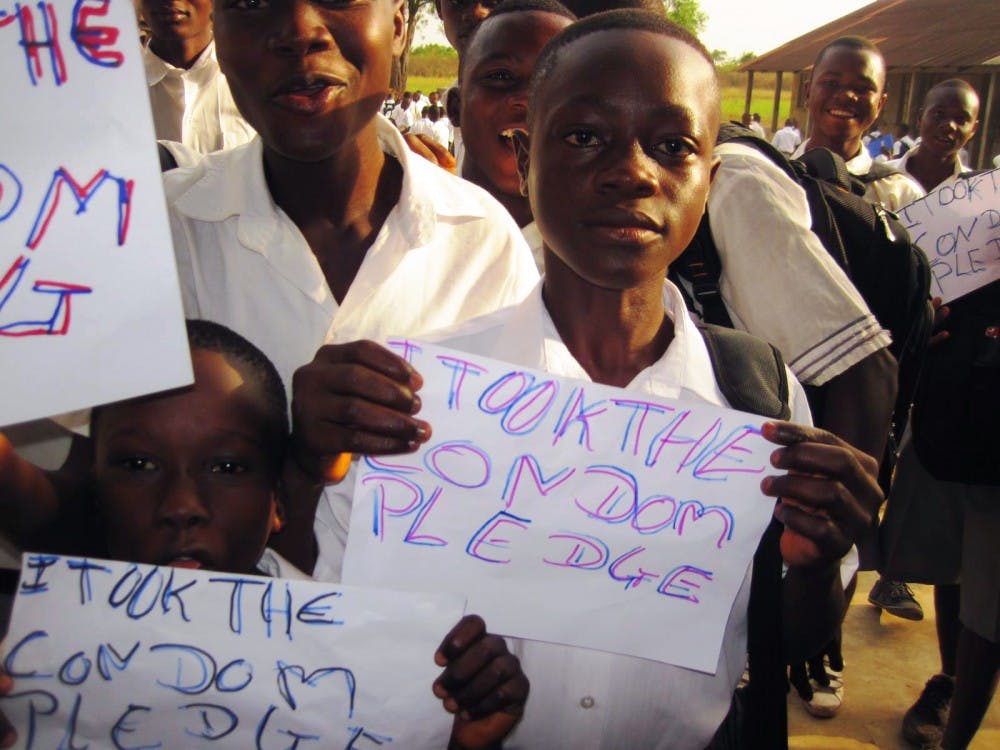Forget purity rings. Just put on a condom.
Jason Parad, a master’s degree student of Bioethics, is committed to making 16- to 26-year-olds worldwide use condoms. The Condom Pledge, which Parad launched in 2013 while a master's student of public health in Penn's Perelman School of Medicine, is a health initiative that promotes condom use specifically as a preventative measure for HIV.
The campaign now reaches more than 30,000 people in 60 countries, including many African and Southeast Asian countries.
“I always had an interest in HIV prevention and visited a lot of countries with organizations that were equally passionate about it,” Parad said. While traveling, he realized that people in different parts of the world are shying away from using the word "condom."
“It’s hard to imagine that people who are uncomfortable saying the word will be able to consistently use one,” he said. “In many countries, the use and even discussion of condoms is held to be taboo or even illegal.”
The campaign’s approach to normalizing preventive measures for HIV makes it noteworthy.
“Anything to promote preventive measures is the step to the right direction,” Rosemary Frasso , Center for Public Health Initiative Senior Fellow, said. She noted that preventing diseases such as HIV costs much less than curing them.
Parad acknowledged that existing organizations have made pushes to distribute condoms, but said that not enough has been done to have people voluntarily use them. He created six criteria that he believes will make the program successful. The criteria are based on behavioral contract concepts he learned at Penn, and are meant to encourage people to adhere to their pledges.
“People were very interested, very enthusiastic and very supportive,” director of the Master's Public Health Program and Penn's Center for Public Health Initiatives Jennifer Pinto-Marti said. “It’s a nice balance of academic innovation and real world execution of the idea.”
In terms of schools’ efforts on sex education and distribution of condoms, Frasso suggested that the Condom Pledge “would be a really thoughtful and interesting campaign to adopt for college students.”
Medical school professor Chyke Doubeni, who has observed Parad's progress at Penn, explained why the Condom Pledge is not just useful in the developing countries, but for the entire world. “In the U.S., it is not so much that people don’t know about condoms, people just don’t use them enough,” he said.
Parad's next step is measuring the impact of the Pledge. He said that the significance of one “like” on Facebook is difficult to define.
Despite some possible challenges for Parad, Penn faculty are confident about what he has done so far and will continue to do.
“The campaign is continuing to enroll new people – people from different generations,” Doubeni said.
“It’s just a simple straightforward message. That’s the strength of it,” Pinto-Martin added.



